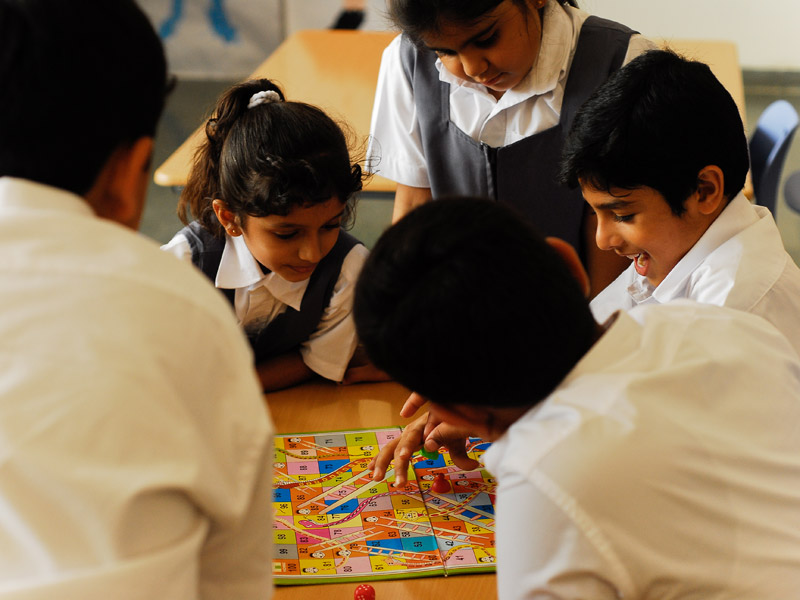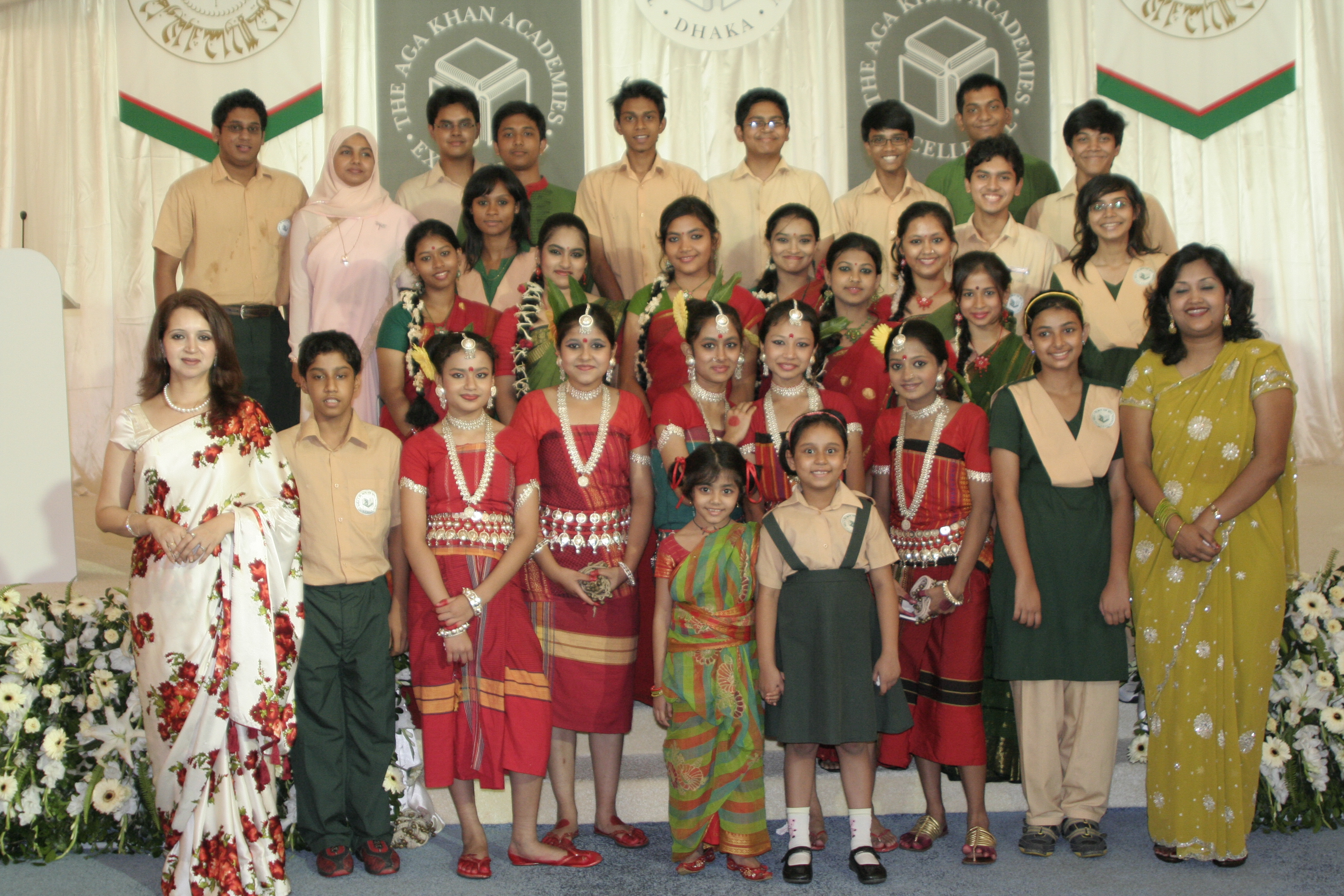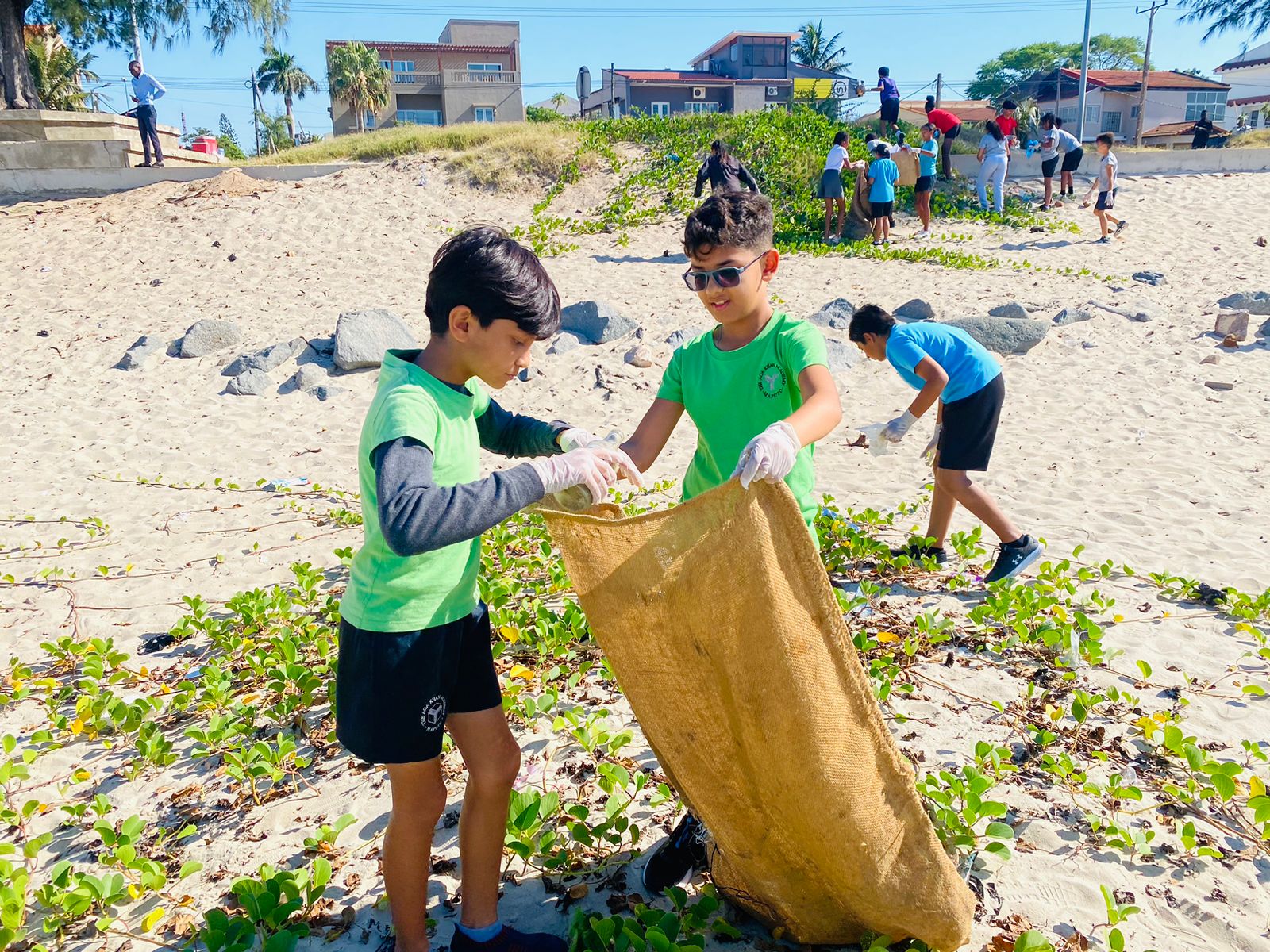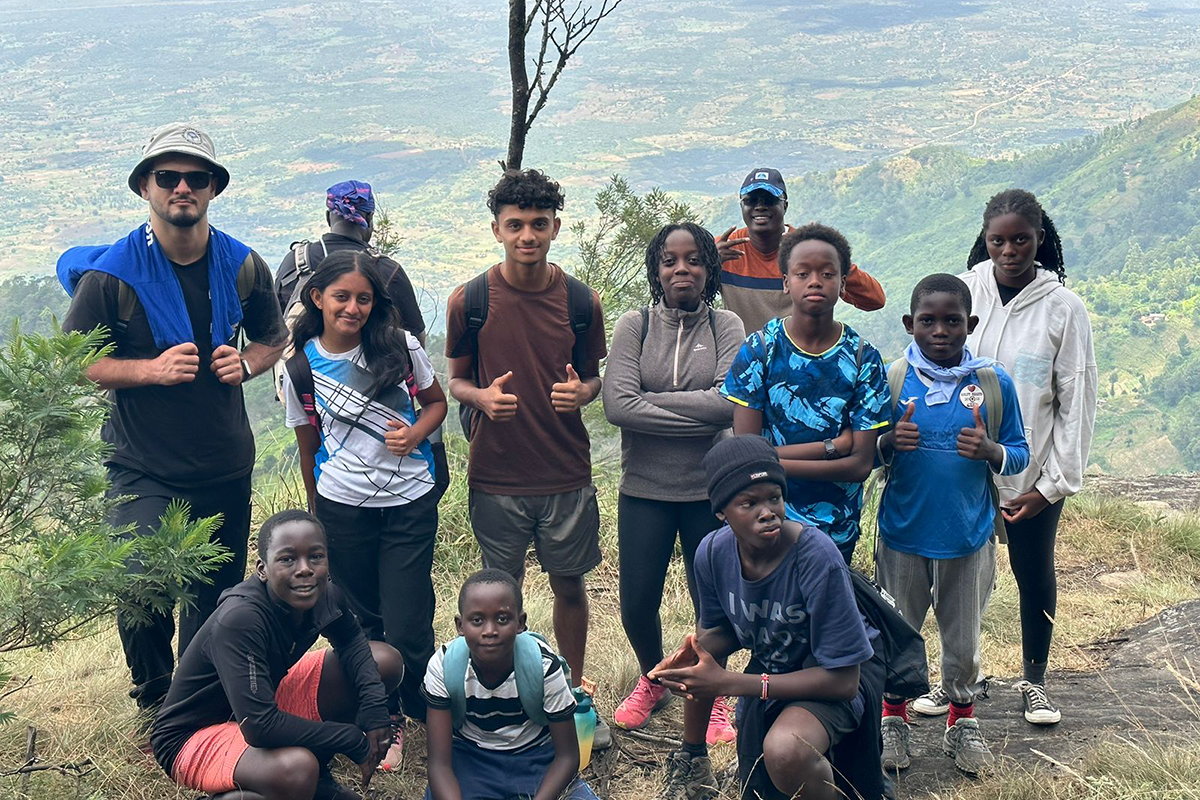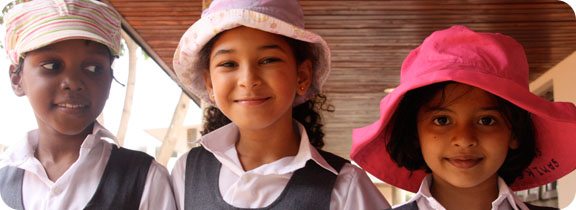
Aga Khan Curricular Strands
The Aga Khan Academies aim to develop young people who will have the capacity to lead and to build strong civil democratic societies. As part of achieving this vision, the Academies have enhanced their curriculum with specific areas of focus known as the Aga Khan Curricular Strands (AK Strands).
The AK Strands aim to strengthen understandings and dispositions needed by leaders of the future. They encompass five critical areas of study:
- Ethics
- Pluralism
- Cultures (with an emphasis on Muslim civilisations)
- Governance and Civil Society
- Economics for Development
The five AK Strands
Two of the AK Strands, Ethics and Pluralism, help students develop values and attitudes required by ethical leaders. Students both discuss these ideas in theory and put them into practice in their daily lives.
The other three AK Strands concentrate on ideas that are integral to the functioning of societies, and in particular on issues related to societies of the developing world.
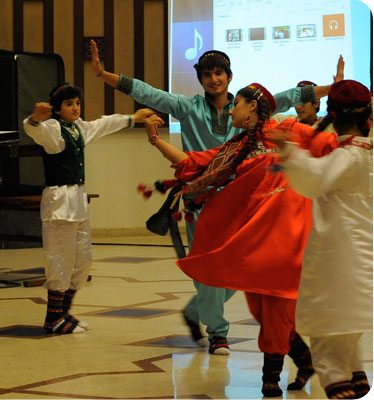
Integration into school life
The Aga Khan Curricular Strands are not structured as additional subjects but rather are woven through the existing curriculum. They are also integrated into the broader functioning of the school.
For example, school policies, co-curricular activities and everyday school life are consciously considered through the lens of each Strand.
While the AK Strands examine issues of global importance, they are also tailored to the cultural context of each Academy, which ensures their local relevance. This allows students to engage with international issues and challenges while remaining strongly grounded in their local context.
Through the Aga Khan Academies Network, teachers and students will be able to explore the strands in different cultural contexts through visits and exchanges with other Academies.
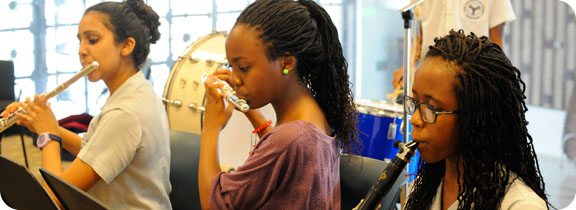
Enrichment Programmes
Enrichment programmes enable students to realise their potential in a variety of settings beyond the classroom. They strive to develop students’ self-awareness, their awareness of school and community needs and opportunities, and to learn how to apply their gifts and skills to make an impact.
The enrichment programmes are clustered into three main streams, each with a different focus and experiential learning opportunity.
Expression
Creative expression, whether through visual or performing arts, engages students to think creatively and express their identities and thoughts aesthetically. Through theatre, art, music and drama, students learn to work together and infuse their projects with the values and lessons from other parts of their schooling. Individual and collaborative creative projects emphasise growth and development through personal challenge, ultimately resulting in achievable personal goals.
Action
The student as a reflective practitioner is a basic tenet of the action cluster. Through physical sport – both competitive and non-competitive – students are challenged in their physical growth, and learn values such as good sportsmanship, teamwork and ethical behaviour. They are encouraged to extend themselves by trying different activities and working with teammates to pass on their knowledge. In line with developing the student as a whole, a healthy lifestyle complements and enhances academic achievement.
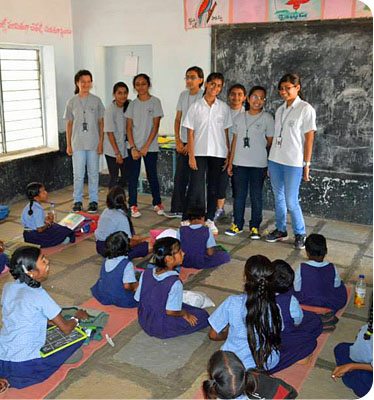 Citizenship
Citizenship
The Academies align themselves with a student profile and curriculum that encourage knowledge and understanding of humanity and civil society.
Through their involvement in civic activities, students gain an understanding of the practical implications of their work and study.
By collaborating with community groups on sustainable projects, they gain an appreciation for human rights, human dignity, and of how their actions impact the world around them.
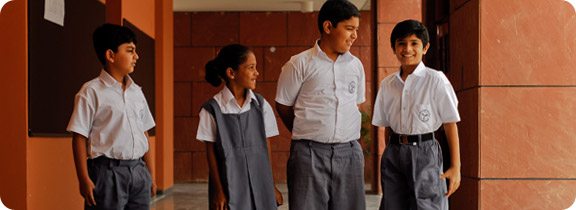
International Exchanges
An international network of Aga Khan Academies links students with their counterparts across East Africa and South Asia.
International student exchanges between Academies in different countries offers students opportunities to broaden their worldview and learn to be at ease in multicultural settings. A common curriculum allows students to study abroad without facing uncertainties regarding the compatibility of the course of study or examinations.
The Academies' Student Exchange Programme launched in the 2018-19 academic year for Grade 9 students at the Aga Khan Academy Mombasa and the Aga Khan Academy Hyderabad. The programme will grow over the coming years, drawing in more Academies as they open and giving students the opportunity to experience life in a range of different countries and cultures.
The Academies are currently putting in place their dual language programme where English and a national language will both be languages of instruction. English will be a common medium at all Academies.
The aim is for students throughout the school to be at least bilingual, and the study of a foreign language will be greatly enhanced through immersion in that language. Likewise, appreciation and respect for other nationalities, cultures and intellectual traditions will be greatly facilitated by direct contact with people in other countries.
Each Academy will have residential facilities in a secure campus setting. Accommodation will be provided not only for international students, but also for boarding students from within the country or region. The campus is considered a vital part of the educational programme.
Campus life is an important part of the international exchange programme. Many of the least tangible but most important elements of an education – the development of practical leadership skills, the capacity to make ethical judgments, the ability to navigate through complex cultural settings – are formed outside the classroom. Mealtimes and other informal gatherings offer opportunities for discussion, meetings and study groups. A campus therefore greatly extends and enriches international exchanges.
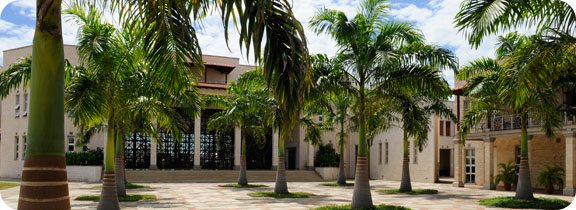
Academy Campuses
The campus of each Aga Khan Academy is architect designed and purpose built, and features exceptional facilities for all aspects of student life. Each campus is designed by renowned architects and is tailored both to meet the needs of the school and to maximise the potential of the site.
Site selection and design
Site selection is a complex process that takes into account a number of factors. These include the urban context of the site, accessibility, infrastructure support and options for long-term expansion.
The site must be able to provide an environment that will be conducive to learning and living. It should also have the potential for creating a space that is inspiring and special for those who live, study and visit there.
The design process for an Academy campus takes into account best practices in facility design. This includes construction techniques that allow spaces to be used for multiple purposes, and classroom environments that are conducive to interactive learning.
Extensive facilities
Each Academy includes the following academic and resource areas:
- age and subject-appropriate classrooms
- well-equipped science and computer laboratories
- library and resource centres
- art and music rooms
- theatre
- design and technology workshop
- multipurpose hall
- religion and culture room
- career counselling facility
- Commons building, which houses the dining hall and an array of spaces for school activities. It is designed to be the hub of student activity, serving as the Academy’s main space for major school functions, including music and drama performances and public lectures.
The sports facilities are extensive and include:
- swimming pools
- sports fields, for example for soccer, hockey and athletics
- gymnasium for indoor sports such as basketball, badminton, volleyball, gymnastics
- tennis court, cricket pitch or ice-skating rink, as appropriate.
Residential accommodation
Residential facilities have been designed to accommodate students and dorm parents (teachers who have been selected and trained to live in the faculty apartments in the student residences).
Accommodation is available for Academy community members from both within the country and overseas, as well as those visiting or on exchange from other Academies. Additional teachers' quarters on campus house both resident and visiting faculty along with their families.
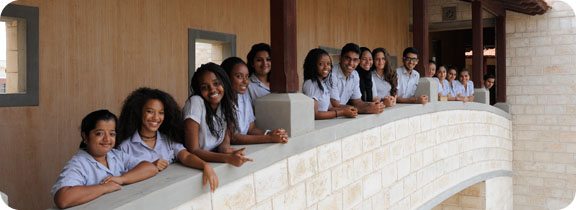
Bridging Global and Local
The Aga Khan Academies provide a globally relevant education, notably through the Aga Khan Curricular Strands (AK Strands), co-curricular offerings and student life. Students are exposed to global themes that emerge from the local context within which students live and learn.
The curriculum is based on the International Baccalaureate (IB) programme, and the overall Academies educational programme is aimed at developing students with strong leadership potential.
The AK Strands focus on globally applicable concepts such as pluralism and global economics. Students are also instructed in English and a local language in all Academies.
Academy students will be expected to spend time on another Academy campus during their secondary school years, thus providing them an immersion experience in a different culture.
The shared IB curriculum enables student and teacher exchanges between Academies.
"A great school, will educate its students not merely to be personally successful but also to use their gifts to build their communities and enhance the common good to levels beyond our dreams."
